#jacque joseph moreau
Quote
'To comprehend the ravings of a madman,' he [Jacque-Joseph Moreau] wrote, 'it is necessary to have raved oneself, but without having lost the awareness of one's madness, without having lost the power to evaluate the psychic changes occurring in the mind.'
Mike Jay, Mescaline: A Global History of the First Psychedelic
#mike jay#Mescaline: A Global History of the First Psychedelic#quote#lit#jacque joseph moreau#madness
0 notes
Text
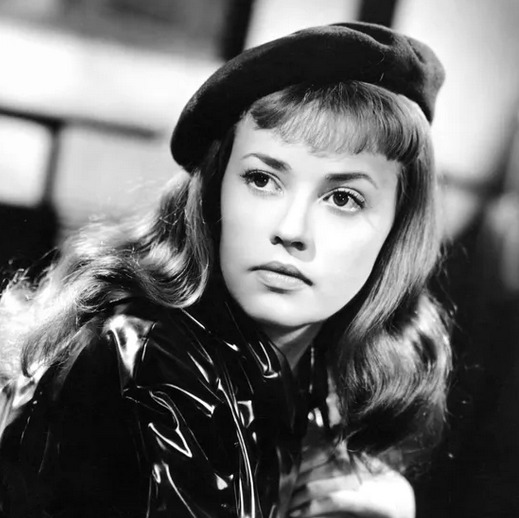
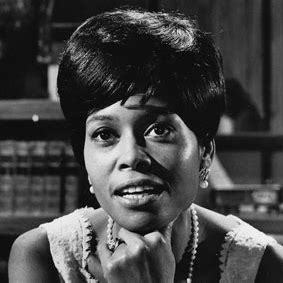
Propaganda
Jeanne Moreau (Jules et Jim, Elevator to the Gallows, The Night)—Oh my. What a career! She's worked with directors from all over the world! Luis Buñuel, Tony Richardson, Bertrand Blier, Elia Kazan, André Téchiné, Rainer Werner Fassbinder, Wim Wenders, Amos Gitai, Theo Angelopoulos, Michelangelo Antonioni, Orson Welles, Jacques Demy, Joseph Losey, François Truffaut... She played good and she played evil, Machiavellian and sweet, she could do it all. She's magnetic, her mouth is sensual, her gaze direct and demanding, she's absolutely unforgettable. […] Iconic Jules & Jim scene where she's singing; I picked a link with English subtitles. […] What can I say? She's an ICON, pure and simple. [editor’s note: this was very good propaganda but I had to remove a large amount of it because it discussed her post-1970 career. Please keep your propaganda to items within our window of 1910-1970!]
Abbey Lincoln (Nothing but a Man, For Love of Ivy)—abbey lincoln was an actress, jazz vocalist, songwriter, and civil rights activist; in her acting career she's most noted for starring in nothing but a man, an independent drama about a black couple navigating life in a small town that's been called an important example of american neorealism, and for love of ivy, a romantic comedy co-starring sidney poitier
This is round 2 of the tournament. All other polls in this bracket can be found here. Please reblog with further support of your beloved hot sexy vintage woman.
[additional propaganda submitted under the cut.]
Abbey Lincoln propaganda:
link to nothing but a man trailer [editor's note: TW for N-word slur]
youtube
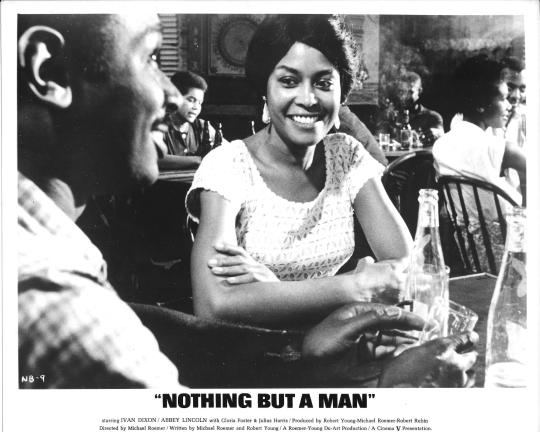
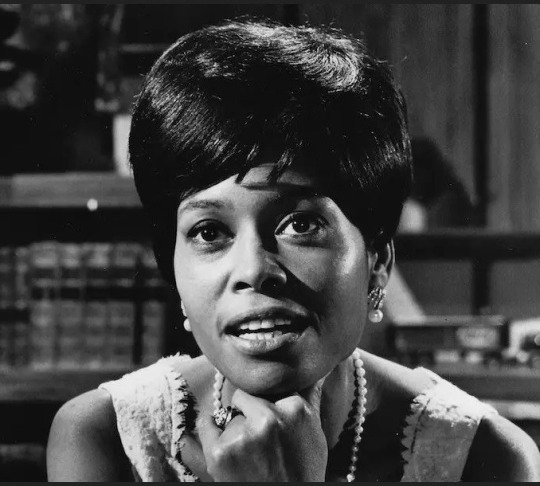
she also appears as herself in the girl can't help it:
youtube
Jeanne Moreau:
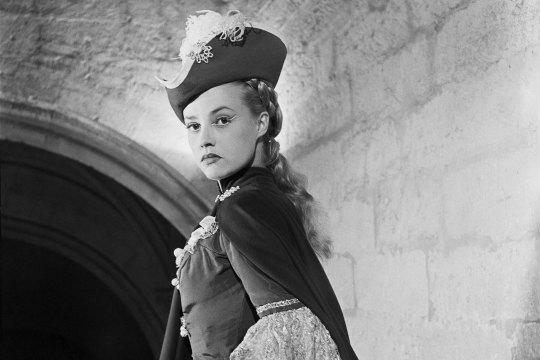
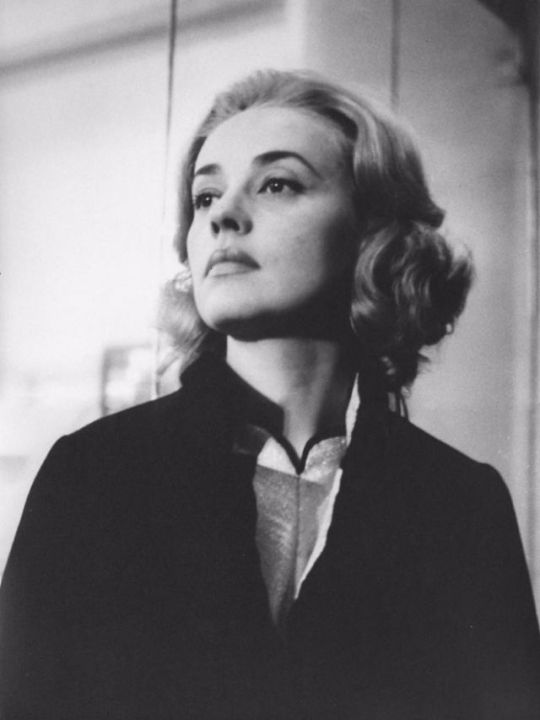
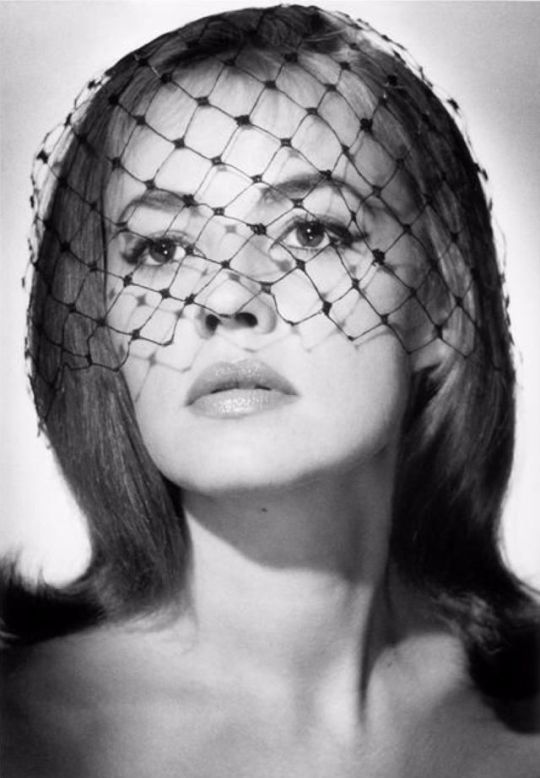

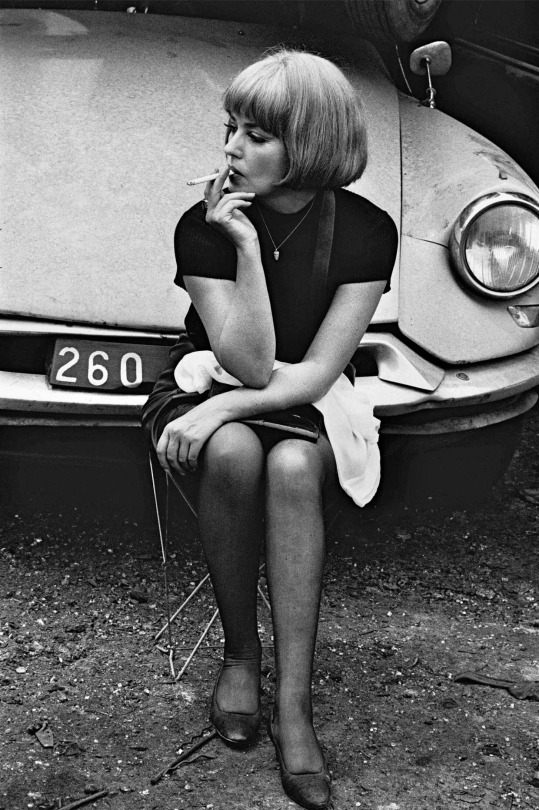
148 notes
·
View notes
Text
French Painters (part one)
Masterlist of French painters and my favorite artwork from them. PM me for suggestions.
-- Paul Cezanne, (1839-1906), romanticism, modern art, cubism, impressionism, post-impressionism
-- Paul Gauguin, (1848-1903), post-impressionism, modern art, symbolism, primitivism. synthetism
-- Gustave Courbet, (1819-1877), realism
-- Henri de Toulouse-Lautrec, (1864-1901), post-impressionism, art nouveau
-- Gustave Moreau, (1826-1898), symbolism, modern art
-- Camille Pissarro, (1830-1903), impressionism, post-impressionism, neo-impressionism
-- Jean Auguste Dominique Ingres, (1780-1867), neoclassicism, orientalism
-- Philippe de Champaigne, (1602-1674), baroque
-- Frederic Bazille, (1841-1870), impressionism
-- Gustave Caillebotte, (1848-1894), impressionism, realism
-- Francois Boucher, (1703-1770), rococo
-- Pierre Brissaud
-- Sophie Blum-Lazarus
-- Pierre Bobot
-- Pierre-Nicolas Brisset
– Etienne Buffet
– Louis Braquaval
– Suzanne Duchamp
– Claude Monet
– Pierre-Auguste Renoir
– Henri Matisse
– Georges Braque
– Rosa Bonheur
– Nicolas Poussin
– Louis-Francois Aubry
– Theodore Gericault
– Etienne Allegrain
– William-Adolphe Bouguereau
– Frederic Samuel Cordey
– Jean de Botton
– Felic Auguste Clement
– Cecile Bart
– Renee Aspe
– Pierre Puvis de Chavannes
– Pierre Auguste Cot
– Edgar Degas
– Eduoard Manet
– Eugene Delacroix
– Jacques-Louis David
– Georges Seurat
– Berthe Morisot
– Joseph Apoux
– Charles Angrand
– Jean-Baptiste-Camille Corot
– Jean-Honoré Fragonard
– Lydia Corbett
– Louis Emile Benassit
-- Joseph Crepin (1875-1948), spiritualism, art brut
-- Roger de la Corbiere, (1893-1974), seascape
-- Thomas Couture, (1815-1879), academic art
-- Jean Simeon Chardin, (1699-1799), rococo, baroque, realism.
29 notes
·
View notes
Photo
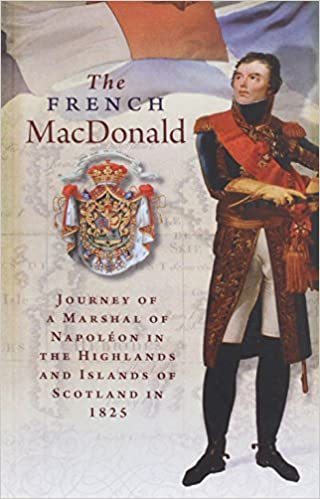


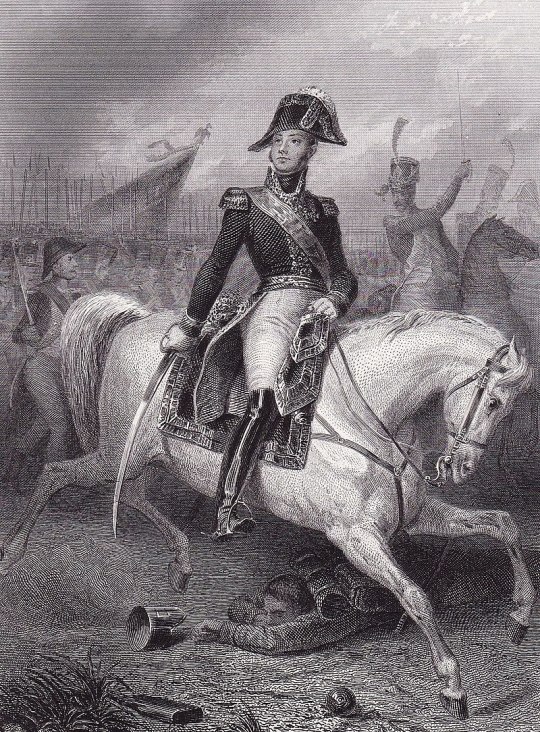

17th November 1765 saw the birth of Étienne Jacques Joseph Alexandre MacDonald at Sedan France.
Scots have had a long history with France, and it did not end with the French Revolution, although no doubt some may very well have become victims of the era and lost their lives and lands, others like Franco-Scot, Étienne MacDonald, would go on to show that their devotion was to France rather than to the ruler.
I’ve posted a few times about MacDonald, but not fully delved into his story, so this is lifted entirely from an article I read. It is a rather long piece, but I found it s very interesting easy read, and shows a man of great dignity. His life covers the French Revolution right through to Napoleon's campaigns through Europe, including his invasion of Russia and his initial abdication in 1814, and beyond.
In 1784 the British Parliament passed the Act of Amnesty which pardoned all Jacobites, but despite this, Étienne’s father Neil MacDonald, who helped Charles Edward Stuart escape to France after the ‘45, never returned to Scotland on account of his poor health and he died in poverty 4 years later.
By this time his son Jacques MacDonald, as he was known, had already begun a promising military career in the French army, and that he would later be central to the cataclysmic events of the French Revolution, Napoleonic Wars and Restoration of the Bourbon Monarchy in France..
MacDonald began his French military career in 1786 by joining the ‘Dillon Regiment’, which was primarily composed of Scottish and Irish Jacobite exiles. The regiment remained loyal to Louis XVI at the outbreak of the revolution in 1789, which led not only to its disbandment in 1791, but the execution of its Colonel, Arthur Dillon, by guillotine in 1794. MacDonald on the other hand was personally loyal to the revolution, marrying a Mademoiselle Jacob, whose father was an enthusiastic supporter of the changes that were taking place in French society.
At the outbreak of war in 1792 MacDonald continued to serve in the new army and was offered a prestigious position as aide-de-camp to General Dumouriez. He distinguished himself at the Battle of Jemappes,and he was also present alongside Dumouriez at the Battle of Valmy. The victory of the French volunteer army at Valmy was a significant turning point in the Revolutionary Wars and it compelled France to formally abolish the monarchy shortly afterwards. By 1793 MacDonald had risen to the rank of Colonel and then refused to desert the Revolutionary Army when Dumouriez defected to the enemy. As a reward for this loyalty he was given the command of a Brigade.
By 1797 he had become a General of a Division and joined the French Army in Italy. He occupied Rome, became the governor of the city, defeated the Austrian Army of General Mack before reorganising the Kingdom of Naples into the Parthenopaean Republic. In 1801 he became the French ambassador to Denmark but did not enjoy the politics of diplomacy and he later asked to be recalled.
After returning to France, it was clear the French Republic was in crisis. Its armies were being outfought by a coalition of empires determined to destroy revolutionary ideas. Internally, France had become politically unstable and a coup d’etat was planned to overthrow the government. It was decided that a general should be part of the coup to ensure the support of the army. The conspirators first choice, General Joubert, was killed in Italy before he could be asked. General Moreau was then asked, but he refused to be a figurehead of the coup. The decision then came to MacDonald himself, and like Moreau before him, he also refused. The next choice for the conspirators was Napoleon Bonaparte, who accepted the offer and took power backed by the army and MacDonald.
Following these events, MacDonald took command of the French Army of Switzerland, an important position that linked the French armies fighting in Germany with those in Northern Italy. He fell out of favour with Napoleon after associating with his rival, General Moreau. This led to Napoleon overlooking MacDonald in his first allocation of Marshals of France around 1805.
The Napoleonic Wars continued from 1805 but MacDonald still remained without a position in the French Army. It wasn’t until 1809 that Napoleon finally allocated command of a Corps to MacDonald, also giving him the responsibility of being a military adviser to Napoleon’s adopted son, Prince Eugene de Beauharnais, the Viceroy of Italy.
The highlight of MacDonald’s career soon followed at the Battle of Wagram in 1809. MacDonald was in command of the reserve corps, and at the height of the battle he was ordered to attack the Austrian centre to relieve pressure on the other parts of the French line. Forming his 8,000 soldiers into an unusual column formation that resembled a large hollow rectangle, MacDonald advanced and successfully held off three Austrian cavalry charges. Under concentrated Austrian cannon and musket fire his Corps suffered 50% casualties and could not advance any further. MacDonald recognised that the Austrians were now disorganised because of his attack, and he ordered the French Guard Cavalry to attack and seize the opportunity to destroy the Austrian centre. General Walther, commander of the Guard Cavalry, refused to take an order from anyone other than Napoleon himself and his cavalry remained stationary. This crucial delay resulted in a lost opportunity to capitalise on the gains that MacDonald had made. Both MacDonald and Napoleon were later furious with General Walther for this decision, Napoleon even being moved to say that it was the first time his cavalry had ever let him down.
Despite the failure of the Guard Cavalry, MacDonald’s attack had sufficiently occupied the attention of the Austrians to allow the French to successfully conduct a general attack on other parts of the line. The French had won the battle and Napoleon rode directly to MacDonald and upon embracing him said,
“General MacDonald, Let us be friends henceforth. You have behaved valiantly and have rendered me the greatest services throughout the entire campaign. On the battlefield of your glory, where I owe you so large a part of yesterday’s success, I make you a Marshal of France. You have long deserved it.”
MacDonald was the first French Marshal to be created on the field of battle and he graciously asked Napoleon to let the rewards be distributed equally among the men of his corps. Napoleon said that he could not refuse him and in further recognition of his services he soon afterwards awarded MacDonald the Grand Eagle of the Legion of Honor, the title of Duke of Taranto and 60,000 francs.
Following the Battle of Wagram, MacDonald was made the Governor of Gratz, a role which he undertook with such distinction that the city wanted to pay him 200,000 Francs when he left, an offer which he refused. MacDonald was then made the Commander of the French army in Catalonia, and also the Governor-General of the principality. MacDonald had serious objections to the manner in which the French were fighting the war in Spain, which had degenerated into a brutal war between French regulars and Spanish guerrilla fighters. Putting aside his objections, he took up the role and met with mixed success. He was defeated at the Battle of Pla in 1811, but later took Figueras after a 4 month siege. Both of these battles were typical of the Spanish War in which large numbers of French troops and resources were tied down by relatively small numbers of elusive Spanish troops. Following the siege of Figueras, MacDonald experienced a sever case of gout, followed by fever. He asked to be transferred and returned to Paris, unable to walk without the assistance of crutches.
MacDonald recovered in time to be present at the French invasion of Russia in 1812, in which he commanded the X Corps and the left wing of the Grand Army. This Corps was a multinational formation, comprising Poles, Bavarians, Westphalians and Prussians. Initially the invasion met with little resistance and MacDonald was able to defend the flank of Napoleon’s invasion by routing a Russian Army near Riga in present day Latvia. Despite his Prussian infantry playing a major part in the victory, MacDonald started to become suspicious of them after they less than enthusiastically undertook his order to pursue and capture the defeated Russians.
After a series of battles Napoleon went on to capture Moscow, which had been completely abandoned by the Russians. After Moscow had been under occupation for three days, the city was set alight by a handful of Russians who had stayed behind to prepare the trap. The resulting fire destroyed 80% of the mostly wooden city and came as a terrible shock to the morale of the French army. Tsar Alexander continued to ignore all calls for surrender from Napoleon and with the French army now camped in a ruined city Napoleon had no choice but to retreat, which the Grand Army began in October 1812.
In November 1812 Napoleon learned that there had been a coup against his rule in Paris. Leaving Marshal Murat in command he left the army had hurried back to Paris to deal with the political problems that had arisen. Marshal Murat also later abandoned the army to save his Kingdom of Naples, leaving Napoleon’s adopted son the Viceroy of Italy, Prince Eugène de Beauharnais in command. MacDonald had previously been a close colleague and military mentor to de Beauharnais and they had worked closely together to secure the French victory at Wagram two years previously.
The French Army had initially invaded Russia with an Army of 450,000 men, but now the remaining 150,000 had the unenviable task of retreating from Moscow through a vicious Russian winter and temperatures of -40c. As the pursuing Russians picked away at the remnants of what was once the largest army in European history, MacDonald was trying to deal with problems within his own Corps. During the retreat he was shocked to discover that General Yorck and the Prussians under his command had defected from MacDonald’s Corps en masse, secretly leaving the army during the night. MacDonald wrote contemptuously of these Prussian’s in his memoirs but he spoke highly of the Polish, Bavarian and Westphalian soldiers of his Corps, who he described as serving faithfully, courageously and with distinction.
During the final stages of the retreat, Marshal Murat requested the advice of MacDonald on how the French Army should proceed. MacDonald recommended abandoning all territory east of the Oder River, holding the line along the river and waiting for the fresh troops being assembled in France. His advice was ignored and the retreat would continue. The total losses during the whole campaign amounted to 380,000 men, with just 35,000 Frenchmen making it home from the initial force.
MacDonald eventually did make it back to France, despite having his travelling expenses of 12,000 francs stolen from him on his way through Prussia. He received a frosty reception from Napoleon when he eventually returned to Paris. The Emperor had been led to believe that the Prussians had deserted the army because MacDonald had treated them badly. In his memoirs MacDonald also suggests that this less than cordial meeting was because Napoleon felt resentment towards his plan of abandoning all territory East of the Oder River. MacDonald left the meeting bemused and with understandable disdain that his services and devotion were met with such a lack of appreciation. However some days later, news had reached Napoleon that the Prussian Government had fully accepted the actions of their soldiers, implying that the desertions had nothing to do with the way MacDonald treated them and everything to do with an imminent Prussian declaration of war against France. He was subsequently summoned by Napoleon, who admitted that he had been misled regarding MacDonald’s actions in Russia, and that he did in fact act wisely in his dealings with the Prussian soldiers of his command.
By 1813 MacDonald was back in the field, joining the 200,000 largely inexperienced soldiers that were sent to link up with the remnants of the French Army in central Europe. A new coalition of powers, including Prussia, had rallied together to defeat Napoleon following his disastrous invasion attempt of Russia.
In the aftermath of the Battle of Leipzig, MacDonald and Prince Poniatowski of Poland were given command of a desperate rear guard action. Hopelessly outnumbered, MacDonald and Poniatowski made a fighting withdrawal through Leipzig towards a bridge across the river Elster. Learning that the bridge had in fact been destroyed by the French in the confusion of the retreat, Poniatowski attempted to swim across the river on horse back. He made it across, but the bank was steep and his horse fell with exhaustion, drowning Poniatowski in the river. As the front disintegrated MacDonald found himself being followed by a crowd of his men desperate to escape the approaching enemy. Seized by his aide-de-camp, MacDonald found a makeshift bridge of wooden logs that had been hastily constructed by a resourceful French engineer. MacDonald dismounted and began walking across the flimsy construction, but as his men began to follow him the bridge began to shake, causing MacDonald to fall into the river. Luckily he fell close enough to the shore that his feet could reach the bottom of the river but he struggled to get out because of the loose soil and steep embankment. Enemy skirmishers fired on him at point blank range before they were scared off by French musket fire on the opposing river bank.
MacDonald barely escaped with his life and upon reaching the top of the riverbank he turned to see whole companies of his men falling into the river, crying out “Marshal! Save your men, save your children!” as they were swept away to their deaths. Overcome with rage and frustration at being unable to save his men, he sat on the riverbank and wept. MacDonald recalls in his memoirs that this scene traumatised him for years after the event and that he could often hear the voices of the screaming men ringing in his ear.
MacDonald was furious with Napoleon for allowing the whole disaster to happen and he initially refused to even meet with the Emperor. Rumors subsequently spread through the army that MacDonald had been killed while crossing the river, but he survived and eventually made his way to Cologne to rebuild his shattered Corps. He remained one of the central commanders of the now hopeless French efforts to keep the allied powers from entering France. Ultimately Paris was captured by the allies in 1814. As Napoleon raced to Fontainebleau it was clear the soldiers were no longer willing to follow Napoleon on what was obviously a lost cause. MacDonald was encouraged to approach Napoleon on behalf of the army, making him aware that the soldiers wanted peace. MacDonald made these points to Napoleon at Fontainebleau, expecting the Emperor to fly into a violent rage, but was surprised when Napoleon reacted quite calmly to the fall of Paris and the reality that the starving and worn out remnants of the army could no longer go on fighting. Napoleon hailed MacDonald as a “good and honorable man” for his frankness and openness. He then turned to all those in the room and announced that he would abdicate the throne in favour of his son. Napoleon sat and wrote out his abdication, rewriting the draft two or three times. Then as Napoleon dismissed them for the evening, he threw himself on the sofa, slapped his leg with his hand and proclaimed, “Nonsense, gentlemen! Let us leave all that alone and march tomorrow, we shall beat them!” No doubt bemused by this departure from reality, MacDonald reiterated everything he had already said about the perilous state of the army. The Marshals, led by Marshal Ney then decided to mutiny against Napoleon to prevent further pointless bloodshed. Napoleon eventually yielded to the inevitable and MacDonald, along with Caulaincourt and Ney, left to personally negotiate the terms of surrender with Tsar Alexander of Russia on behalf of Napoleon.
MacDonald was to write that Tsar Alexander was gracious in victory and spoke respectfully of the French. MacDonald notes in his memoirs that aside from Marshal Ney, who was unstable and aggressive, Tsar Alexander’s conciliatory tone was reciprocated by the French Marshals. The Prussians were far less accommodating and were quick to remind the French that they were the scourge of Europe, immediately demanding compensation and providing none of the compliments that the Tsar had generously offered the French army. The other main member of the allied coalition was Austria, who was willing to allow Napoleon’s wife and son to keep their titles, but on the condition that they were prohibited from ever attaining power in France. Britain refused to negotiate at all, claiming that they did not recognise Napoleon as a legitimate authority, which was probably just as well for Napoleon who half heartedly said that you could “never trust a MacDonald within sound of bagpipes.”
Following the exchange, the allied powers were keen to ensure that the Marshals submitted to the new order. This would guarantee that the French Army would also obediently submit to the provisional government. Marshal Ney immediately submitted, but MacDonald and Caulaincourt remained loyal to Napoleon until the formal ratification of the treaty, after which time MacDonald wrote a simple statement to the provisional government saying that “being released from my allegiance by the abdication of the Emperor Napoleon, I declare that I conform to the Acts of the Senate and the Provisional Government.” This act of dignified defiance infuriated the ever scheming French statesmen de Talleyrand, whose face was said to turn pale before almost bursting with rage when MacDonald politely refused to submit until the formal ratification of the treaty.
MacDonald returned to Fontainbleu to call upon Napoleon. On the morning of the 13th of March 1814, MacDonald entered to find a despondent Napoleon wearing his dressing gown and slippers, with his head buried in his hands and his elbows on his knees. He did not stir when MacDonald entered the room, but on prompting from Caulaincourt he appeared to wake from a dream and MacDonald found him to have a sickly yellow-green complexion. Napoleon apologised and said that he had been sick all night, later evidence suggests that it was likely Napoleon had taken an overdose of opium in an attempt to try and sleep after the emotionally exhaustive events of recent months.
Again, Napoleon sat in the room, remained silent for a period of time before turning to MacDonald and saying,
“Duke of Tarentum, I cannot tell you how touched and grateful I am for your conduct and devotion. I did not know you well; I was prejudiced against you. I have done so much for, and loaded with favours, so many others, who have abandoned and neglected me; and you, who owed me nothing, have remained faithful to me I appreciate your loyalty all too late, and I sincerely regret that I am no longer in a position to express my gratitude to you except by words.”
Napoleon noted that MacDonald had always had a generous manner, never accepting large amounts of money while being an impartial ruler who brought justice wherever he commanded. Napoleon then implored MacDonald to accept the sword of the former leader of the Mamelukes, Murad Bey, which had been captured in Egypt in 1798 and worn by Napoleon at the Battle of Mount Tabor in 1799. MacDonald accepted the gift as a sign of Napoleon’s friendship and the two commanders emotionally embraced each other. It was the last time that MacDonald and Napoleon would ever meet.
I think I’ve taken this as far as I want to for this lengthy post, but there is much more to read in part two just click here!
When he died in 1840 at the age of 70 he was given a state funeral and buried in the Pere Lachaise cemetery in Paris. Pere Lachaise is where the great and good of early nineteenth century Paris were buried. 14 of Napoleon’s 26 Marshals are buried there.
Somhairle MacGill-Eain/ Sorley MacLean, wrote a poem about Marshal Étienne Jacques MacDonald of France, I shall post that later.
There are more pics in the article I took this from here https://sonofskye.wordpress.com/2014/05/10/marshal-etienne-jacques-macdonald-of-france-1765-1814/
52 notes
·
View notes
Photo
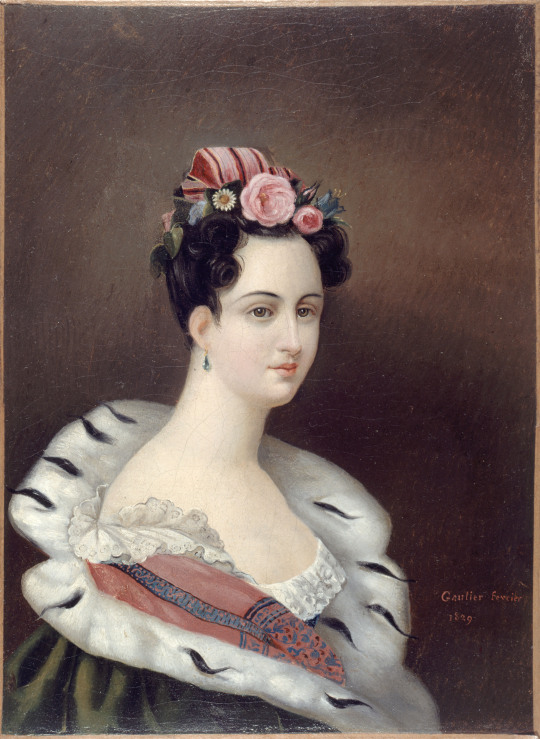
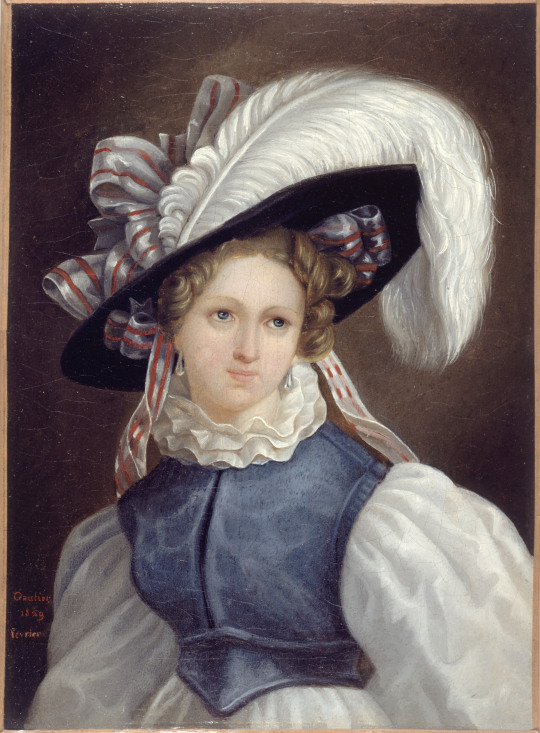
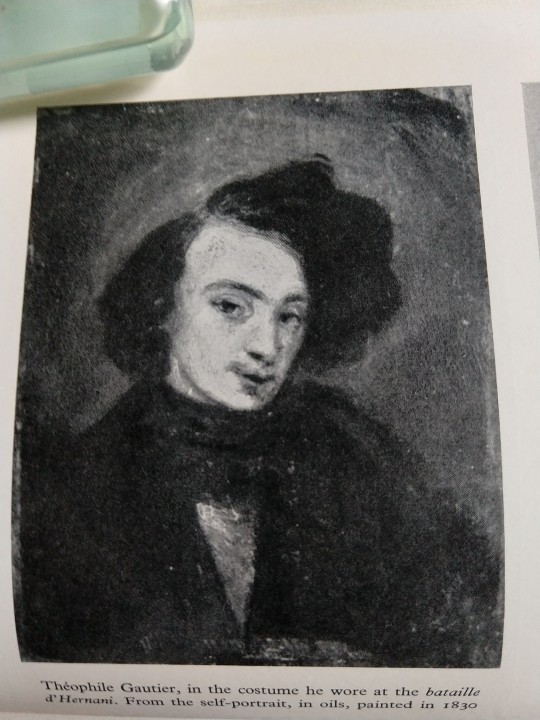
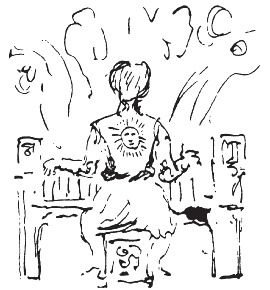
For various reasons, let’s have a picspam of some of Théophile Gautier’s art!
Top: Portrait de femme brune and Portrait de femme , both 1829, courtesy good old Wikimedia
Second row: B&W photo of a self portrait of himself in his Hernaniste costume, done in 1830. Photo from Joanna Richardson’s bio on Gautier
Bottom row: “ A sketch of Jacques-Joseph Moreau playing the piano in a Turkish costume, made by Théophile Gautier in 1845, under the influence of hashish. “ 1845, wikimedia again!
14 notes
·
View notes
Photo

Isabelle Huppert in La Truite (Joseph Losey, 1982)
Cast: Isabelle Huppert, Jean-Pierre Cassel, Jeanne Moreau, Daniel Olbrychski, Jacques Spiesser, Isao Yamagata, Jean-Paul Roussillon, Roland Bertin, Lisette Malidor, Craig Stevens, Ruggero Raimondi, Alexis Smith. Screenplay: Monique Lange, Joseph Losey, based on a novel by Roger Vailland. Cinematography: Henri Alekan. Production design: Alexandre Trauner. Film editing: Marie Castro. Music: Richard Hartley.
I wish I had known beforehand that Joseph Losey's La Truite is supposedly a comedy or a "French sex farce" as the description on Rotten Tomatoes puts it. I wouldn't have worried so much that I had lost my sense of humor -- or concluded that Losey didn't know how to tell a joke. Or perhaps I would have laughed more at the scenes that seem to be meant to be funny, like Frédérique's (Isabelle Huppert) bowling-alley hustle or the one in which she tosses out of the window the taxidermied fish belonging to the man who molested her in adolescence. Or even at the absurdity of seeing such luminaries of French cinema as Huppert, Jeanne Moreau, and Jean-Pierre Cassel in a bowling alley. There was one scene that amused me: Alexis Smith's very funny cameo appearance as the worldly wise Gloria, whom Frédérique, encumbered with an armload of gift-wrapped packages, encounters in a Japanese hotel. But there's really not much humor to be found in stale marriages, suicide attempts, sexual harassment, and an apparent murder, anyway. Mostly La Truite is a slog, with Losey unable to set the proper prevailing tone -- or really any tone -- for his story about a young woman's rise to power and influence. We spend so much time puzzling out who these characters are and what their relationships to one another may be, that there's not much time left to appreciate the story, especially since it's chopped up with flashbacks. We know where we are in time mostly by the length of Frédérique's hair, which starts out in her childhood in the trout hatchery as a waist-length red mane, has become a pageboy bob by the time she meets the Ramberts (Moreau and Cassel) and Saint-Genis (Daniel Olbrychski), and is chopped off becomingly when the latter takes her with him to Japan. La Truite is visually interesting, thanks to the work of two veterans of French film: cinematographer Henri Alekan and production designer Alexandre Trauner. But Losey's work as both director and screenwriter lets them, and his cast, down.
5 notes
·
View notes
Text
On this day in Wikipedia: Monday, 1st April
Welcome, أهلا بك (ahlan bika), bienvenido, tervetuloa 🤗
What does @Wikipedia say about 1st April through the years 🏛️📜🗓️?

1st April 2019 🗓️ : Death - Vonda N. McIntyre
Vonda N. McIntyre, American science fiction author (b. 1948)
"Vonda Neel McIntyre (August 28, 1948 – April 1, 2019) was an American science fiction writer and biologist...."
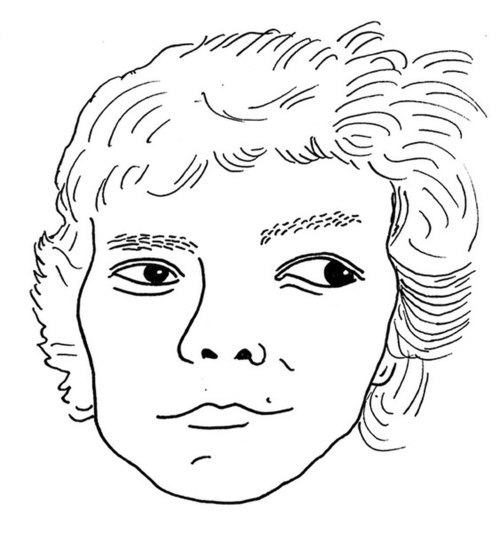
Image licensed under CC BY-SA 4.0? by HerB104
1st April 2014 🗓️ : Death - Jacques Le Goff
Jacques Le Goff, French historian and author (b. 1924)
"Jacques Le Goff (French pronunciation: [ʒak lə ɡɔf]; 1 January 1924 – 1 April 2014) was a French historian and prolific author specializing in the Middle Ages, particularly the 12th and 13th centuries.Le Goff championed the Annales School movement, which emphasizes long-term trends over the topics..."
1st April 1974 🗓️ : Event - Local Government Act 1972
The Local Government Act 1972 of England and Wales comes into effect.
"The Local Government Act 1972 (c. 70) is an act of the Parliament of the United Kingdom that reformed local government in England and Wales on 1 April 1974. It was one of the most significant Acts of Parliament to be passed by the Heath Government of 1970–74. The Act took the total number of..."
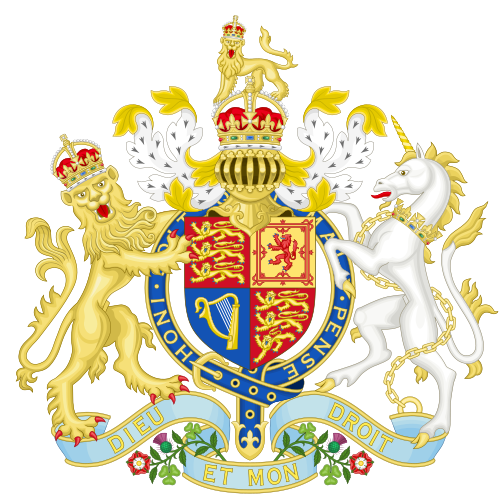
Image licensed under CC BY-SA 4.0? by Valethske
1st April 1924 🗓️ : Event - Adolf Hitler
Adolf Hitler is sentenced to five years imprisonment for his participation in the "Beer Hall Putsch" but spends only nine months in jail.
"Adolf Hitler (20 April 1889 – 30 April 1945) was an Austrian-born German politician who was the dictator of Nazi Germany from 1933 until his suicide in 1945. He rose to power as the leader of the Nazi Party, becoming the chancellor in 1933 and then taking the title of Führer und Reichskanzler in..."

Image licensed under CC BY-SA 3.0 de? by Heinrich Hoffmann
1st April 1824 🗓️ : Birth - Louis-Zéphirin Moreau
Louis-Zéphirin Moreau, Canadian bishop (d. 1901)
"Louis-Zéphirin Moreau (1 April 1824 – 24 May 1901) was a Canadian Roman Catholic prelate who served as the fourth Bishop of Saint-Hyacinthe from 1875 until his death in 1901. He was also the cofounder of the Sisters of St. Joseph of St. Hyacinthe, an congregation he founded with Élisabeth Bergeron,..."

Image by J.E. Livernois
1st April 🗓️ : Holiday - Christian feast day: Walric, abbot of Leuconay
"Saint Walaric, modern French Valery (died 620), was a Frankish monk turned hermit who founded the abbey of Saint-Valery-sur-Somme. His cult was recognized in Normandy and England...."

Image by
Unknown authorUnknown author
0 notes
Text
★ 12 janvier 2024 > bit.ly/hobo-12janvier2024

★ Les nouveautés de nos éditrices et éditeurs sorties le 12 janvier 2024 > bit.ly/hobo-12janvier2024
COMITÉ SOULÈVEMENTS 14, Reprendre, démanteler, communiser, Grevis
Joseph ANDRAS & Kaoutar HARCHI, Littérature et révolution, Divergences
Mačko DRÀGÀN, Abrégé de littérature-molotov, Terres de Feu
Pascal NICOLAS-LE STRAT, Faire recherche en commun, Éditions du commun
Errico MALATESTA, Conversations sur l’anarchie, Nada
Ulrike MEINHOF, Flingue, conscience et collectif, Premiers Matins de Novembre
COLLECTIF, Pour le meilleur et pour le Pile, Les Étaques
COLLECTIF, Habitante 5, Audimat | Éditions Présentes
Javier SÁEZ & Sejo CARRASCOSA, Enculé !, Les Grillages
Florence-Agathe DUBÉ-MOREAU, Hors jeu, Remue-ménage
Lundy BANCROFT, Pourquoi fait-il ça ?, Éditions Libre
Luce FABBRI, Leçons sur la définition et l'histoire du fascisme, Noir et rouge
Marina GARRISI, Découvrir Lénine, Les Éditions sociales
Lars LIH, Lénine, une enquête historique, Les Éditions sociales
Georg LUKACS, La Pensée de Lénine, Communard.e.s
Roberto MARTÍNEZ CATALÁN, Destination Saragosse, Le Coquelicot
Alex RATCHARGE, Entre un néant et un autre, Des mondes à faire
J. D. KURTNESS, Aquariums, Dépaysage
Hervé BRIZON, La Vie rêvée de sainte Tapiole, Terrasses
Jacques ROBERTI, À la belle de nuit, Lapidaires
Léon DEFFOUX, Un communard, Lapidaires
JUSTHOM, Moi, un homme méprisé, humilié, martyrisé par sa compagne, et enfin libre, Éditions libertaires
Coline PICAUD, Hawa, Le Monde à l'envers
Coline PICAUD, Daiane, Le Monde à l'envers
Anastasia YANOUCHEVSKI, Mains, Ravin bleu
COLLECTIF, Des sentiments, Goater
"Je suis gênée par l'idée d'engagement. Michel Houellebecq ou Sylvain Tesson, en écrivant les livres qu'ils écrivent, eux aussi s'engagent, eux aussi défendent une vision du monde. Il y a, livre après livre, des valeurs qui sont de plus en plus ardemment défendues. Des valeurs nationalistes, sexistes, réactionnaires notamment. Mais d'eux, il ne sera pas dit qu'ils sont des écrivains engagés. Mais : des écrivains. Des écrivains tout court." Kaoutar Harchi
Joseph Andras & Kaoutar Harchi, Littérature et révolution, Divergences.
0 notes
Text
Lyrics
Nahomie Denis / ALO DOKTÈ
FICHE TECHNIQUE
Titre : Alo Doktè
Interprète : Nahomie Denis
Séquenceur : Stanley Aris (Shegger Beat)
Studio D'enregistrement : ZP Records Production
Mixage : Browns Louis Charles
Paroles et Musique : Ricardo Moreau
Arrangement Paroles : Past. Jacky Chery
Paroles additionnelles : Martin Luther Jules, Hudson Pierre
Choristes : Annie Tracy Isaac, Johny Torcel,Jean Elie Brutus
Piano : Joseph Pierre
Bass : Ricardo Moreau
Percussionniste : Sardau Francisco Lafrance
Affiche : Chachou Design Graphist
Photo affiche : Jazzy’s Photography
Remerciement spécial à : Tarah Renaud, Geneviève Louis-Jeunes, Vania Richard, Myrline Joisyl, Sophia Romain Fénélon, Eliel Mercier et famille, Serge Saint-Hylaire, Jacques Fénélon, Norman Iméran, Edwidge Metellus, Jobson Demero, tous les médias et sponsors.
Source: Lien Youtube de la vidéo
0 notes
Text
0 notes
Text

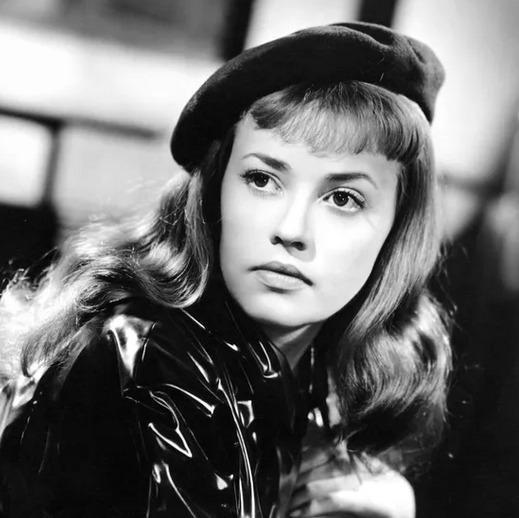
Propaganda
Nieves Navarro Garcia (The Big Gundown, Kiss Kiss Bang Bang)— i mean look at her. legendary model and actress in spaghetti westerns, giallo, and erotic comedies. my first introduction to her was as a widowed dominatrix keeping her ranch hands (all dressed in as little leather as possible) in line with a whip. and she fucking steals the one singular scene she’s in
Jeanne Moreau (Jules et Jim, Elevator to the Gallows, The Night)—Oh my. What a career! She's worked with directors from all over the world! Luis Buñuel, Tony Richardson, Bertrand Blier, Elia Kazan, André Téchiné, Rainer Werner Fassbinder, Wim Wenders, Amos Gitai, Theo Angelopoulos, Michelangelo Antonioni, Orson Welles, Jacques Demy, Joseph Losey, François Truffaut... She played good and she played evil, Machiavellian and sweet, she could do it all. She's magnetic, her mouth is sensual, her gaze direct and demanding, she's absolutely unforgettable. […] Iconic Jules & Jim scene where she's singing; I picked a link with English subtitles. […] What can I say? She's an ICON, pure and simple. [editor’s note: this was very good propaganda but I had to remove a large amount of it because it discussed her post-1970 career. Please keep your propaganda to items within our window of 1910-1970!]
This is round 1 of the tournament. All other polls in this bracket can be found here. Please reblog with further support of your beloved hot sexy vintage woman.
[additional propaganda submitted under the cut.]
Jeanne Moreau:
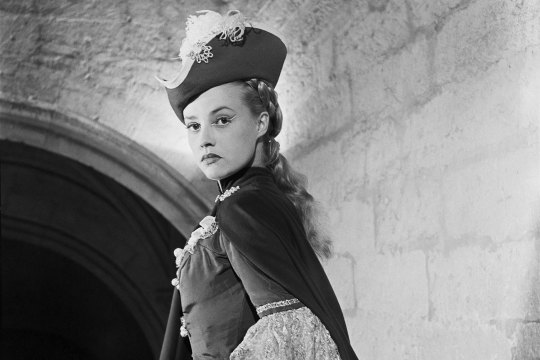
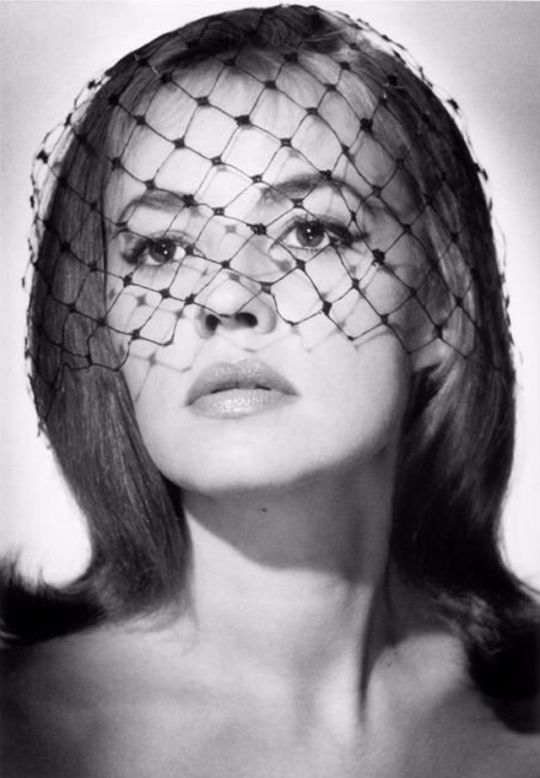
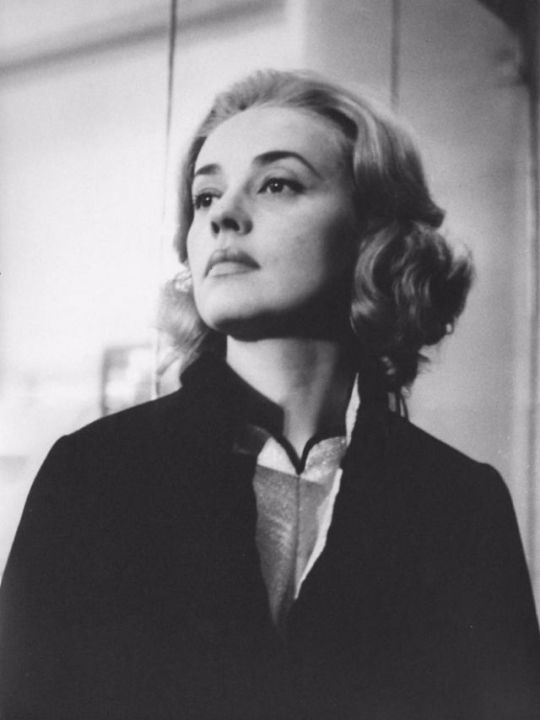
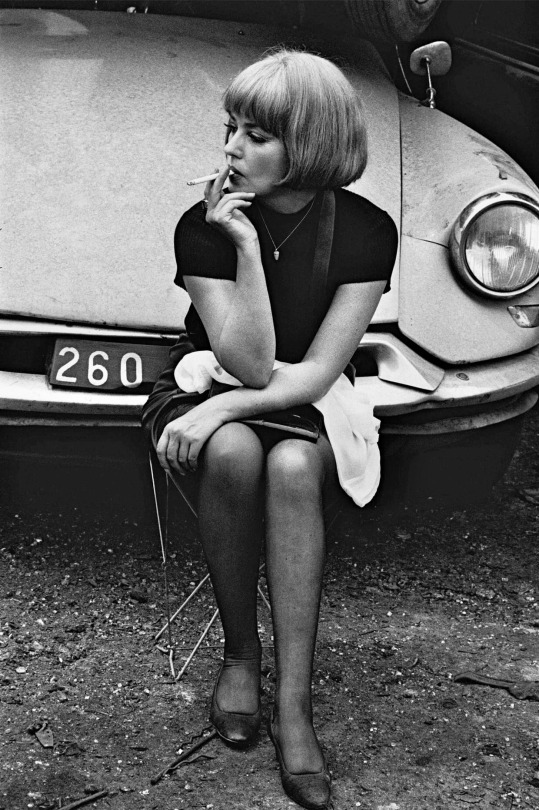
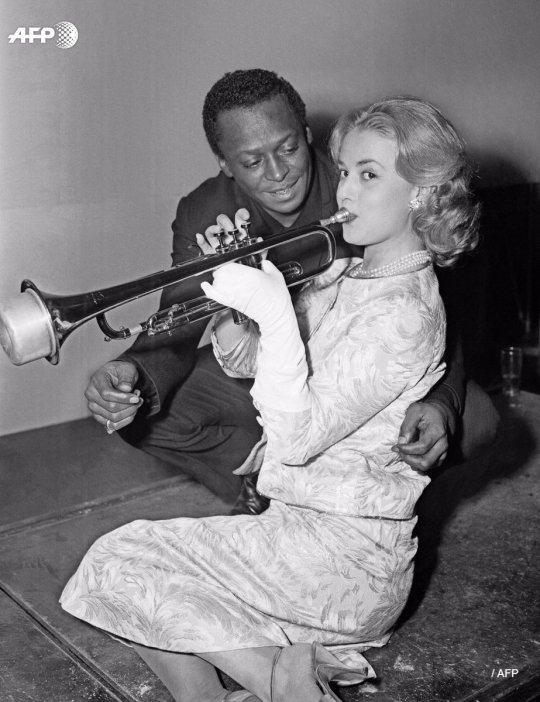
100 notes
·
View notes
Text
Chouans

View On WordPress
#1793#Alphonse de Boisricheux#Auguste de La Rochejaquelein#Balzac#Charles Coëssin de la Fosse#Charles Moreau-Vauthier#Colonnes infernales (guerres de Vendée)#Evariste Carpentier#Granville#Henri de la Rochejaquelein#Historial de Vendée#Hubert-Sauzeau#Jacques Cathelineau#Jean Chouan#Jean-François Hue#Joseph Bara#Jules-Benoît Lévy#Julien Le Blant#Les Chouans#Louis de La Rochejaquelein#Lucien de Latouche (peintre)#Marie Louise Victoire de La Rochejaquelein#Massacre des Lucs sur Boulogne (guerres de Vendée)#Mémoires de la marquise de La Rochejaquelein#Mémorial de la Vendée#Napoléon#Pierre-Narcisse Guérin#Prince de Talmont#Robespierre#Victor Hugo
1 note
·
View note
Text
Avril MMXXI
Films
Une idée de génie (Ingenious) (2009) de Jeff Balsmeyer avec Dallas Roberts, Jeremy Renner, Ayelet Zurer, Marguerite Moreau et Amanda Anka
Ghost in the Shell (2017) de Rupert Sanders avec Scarlett Johansson, Takeshi Kitano, Michael Pitt, Pilou Asbæk et Juliette Binoche
Comment voler un million de dollars (How to Steal a Million) (1966) de William Wyler avec Audrey Hepburn, Peter O'Toole, Hugh Griffith et Eli Wallach
Niagara (1953) de Henry Hathaway avec Marilyn Monroe, Joseph Cotten, Jean Peters, Casey Adams et Denis O'Dea
Faut pas prendre les enfants du bon Dieu pour des canards sauvages (1968) de Michel Audiard avec Françoise Rosay, Bernard Blier, Marlène Jobert et André Pousse
Lost in Translation (2003) de Sofia Coppola avec Scarlett Johansson, Bill Murray, Giovanni Ribisi et Anna Faris
Mission impossible 2 (Mission: Impossible 2) (2000) de John Woo avec Tom Cruise, Dougray Scott, Thandie Newton et Ving Rhames
Dies iræ (2003) d’Alexandre Astier avec Tony Saba, Thomas Cousseau, Lionnel Astier, Nicolas Gabion, Franck Pitiot, Jean-Christophe Hembert, Alexandre Astier et Jean-Robert Lombard
Poulet au vinaigre (1985) de Claude Chabrol avec Jean Poiret, Stéphane Audran, Lucas Belvaux, Michel Bouquet, Caroline Cellier, Jean Topart et Pauline Lafont
Tony Rome est dangereux (Tony Rome) (1967) de Gordon Douglas avec Frank Sinatra, Jill St John, Richard Conte, Gena Rowlands et Simon Oakland
Le Retour de la Panthère Rose (The Return of the Pink Panther) (1975) de Blake Edwards avec Peter Sellers, Christopher Plummer, Catherine Schell et Herbert Lom
Spectacles
Une femme presque fidèle (1977) de Jacques Bernard avec Jacques Mauclair, Dominique Paturel, Jacqueline Gauthier, Monique Tarbès et Sacha Briquet
Nono (1984) de Sacha Guitry avec Michel Roux, Bernard Alane, Robert Manuel et Katia Tchenko
Séries
Friends Saison 5, 6
Celui qui rate son week-end - Celui qui a du mal à se taire - Celui qui emménage - Celui qui avait des souvenirs difficiles à avaler - Celui qui s'était fait piquer son sandwich - Celui qui avait une sœur un peu spéciale - Celui qui prenait de bonnes résolutions - Celui qui riait différemment - Celui qui avait un sac - Celui qui découvre tout - Celui qui prenait des coups - Celui qui enviait ses amis - Celui qui ne savait pas se repérer - Celui qui se sacrifiait - Celui qui ne savait pas flirter - Celui qui sauvait des vies - Celui qui jouait à la balle - Celui qui devait casser la baraque - Celui qui était à Las Vegas : 1re partie - Celui qui était à Las Vegas : 2e partie - Ceux qui revenaient de Las Vegas - Celui qui console Rachel - Celui qui était de mauvaise foi - Celui qui perdait sa belle assurance - Celui qui avait une belle bagnole - Ceux qui passaient leur dernière nuit - Celui qui avait une jolie colocataire - Celui qui avait les dents blanches - Celui qui s'était drogué - Celui qui souhaitait la bonne année - Celui qui avait le derrière entre deux chaises - Celui qui inventait des histoires - Celui qui sortait avec la sœur
Méli Mélo Saison 1, 2, 3
Au prix que ça coûte ! - Sors de ton lit ! - Vive l'herbe libre - Allais, allez ! - Des tout petits cachets ! - Bzz ! - Tartare de sédiments ! - Papy lingette ! - Eau propre eau sale ! - Le goût des eaux - Le changement c'est maintenant ! - Les sceptiques de la fosse ! - Culture et Captages - L'étroite moustiquaire - Un léger penchant ! - De source sûre !
Meurtres au paradis Saison 10
Meurtre dans la matinale - Trésors enfouis - Jackpot - Enquête sous perfusion
Nestor Burma Saison 3
Les Eaux troubles de Javel - Nestor Burma court la poupée - Brouillard au pont de Tolbiac
Kaamelott Livre IV, I
La Carte - Le Repas de famille - Le Répurgateur - Le Labyrinthe - Beaucoup de bruit pour rien - Le Oud II - Le discours - Le Duel - L'Invasion viking - La Bataille rangée - La Romance de Perceval - Unagi IV - La Permission - Anges et Démons - Les Tartes aux fraises - Le Chaudron rutilant - La Visite d’Ygerne - Les Clandestins - La Kleptomane - Le Pain - La Mort le Roy Artu - Le Problème du chou - Un roi à la taverne - Les Fesses de Guenièvre
Les Nouvelles Aventures de Lucky Luke
Liki Liki - Lucky Luke en Alaska
Top Gear Saison 14, 21, 19, 22, 13
Road Trip en Roumanie - Road Trip à Tchernobyl - Spécial Afrique : Première partie - Les pires voitures de l’histoire - Les imbéciles changent d'avis ! - Passion vintage
Columbo Saison 7, 3
Le mystère de la chambre forte - Au-delà de la folie
Livres
Lucky Luke #52 : Fingers de Morris et Hartog Van Banda
Plan de bataille pour OSS 117 de Jean Bruce
Lucky Luke #33 : Le Pied-Tendre de Morris et René Goscinny
Superman Poche N°48
On est foutu, on pense trop ! de Serge Marquis
Wanted Lucky Luke de Matthieu Bonhomme
1 note
·
View note
Text
The Truth About Cannabis Products

One of the most common misconceptions about cannabis products is that they are all legal and that they can be used recreationally. There is no law against the use of cannabis, but there are many myths about the drug, so it's important to know how to identify fake products. World Wide Weed by Potter G. (2013), Ashgate Publishing, Ltd., provides a comprehensive guide to this controversial topic. You'll learn about the different types of marijuana and what makes them illegal in your state.
The first time cannabis was brought to the New World was during the 1530s. Spanish explorers introduced it to the Americas and Jacques-Joseph Moreau studied the psychoactive properties of the plant and was a member of the Parisian club des Hashischins. In 1842, British explorer William Brooke O'Shaughnessy collected and studied the drug in Bengal with the East India Company.
Today, many products made from marijuana are derived from hemp and other plants. Phytocannabinoids are found in plants and they have many properties, you can buy them at seven leaves near me. The most common and effective cannabinoids are tetrahydrocannabinol (THC) and cannabidiol (CBD). Both of these compounds act as neurotransmitters and have been used to treat a variety of illnesses.
There are various kinds of cannabis oils, each with a different concentration of cannabinoids. CBD oil is the most popular, and cannabigerol (CBG) oil has been seen in some laboratories. CBD oil, also known as Simpson oil, is also known as an oil that is rich in THC. These oils also contain terpenes, but it is important to note that terpene components are volatile, so their presence is not guaranteed.
There are several types of cannabis products available at seven leaves, but most of them are sold in the form of cannabis flowers. In addition to vaporized cannabis oil, edibles are the most popular and profitable. The highest-selling edibles are made from marijuana leaves. They are popular because they are easy to use and do not need special tools. Some of these edibles can be popped into your mouth and eaten. Various products in the market are made from the same plant.
Some products may not be safe for certain people. Those with underlying lung conditions such as cancer should avoid vaporized or smoked cannabis. Those with a chronic disease should check with their doctor before using these products. Some types of cannabinoid-infused foods may have harmful effects on the body. Therefore, it's best to seek medical advice before inhaling any cannabis product. These supplements contain a minimum of THC and CBD.
There are two types of cannabis products. The most common is oil-based, and it's often sold in liquid form. Oil-based products contain plant material without any cannabinoids. The latter contains only trace amounts of THC but is the least harmful. Nonetheless, both kinds can be dangerous. It's important to make sure that cannabis products are legal in your state. The FDA is committed to protecting the public from unsafe and unhealthful substances. For more understanding of this article, visit this link: https://en.wikipedia.org/wiki/Dispensary.
0 notes
Photo

“I cannot describe the thousand fantastic ideas that passed through my brain during the three hours that I was under the influence of the hashish.” -Dr. Jacques-Joseph Moreau, Researcher (1804- 1884)
0 notes
Text
A Masterlist of Underused French Names
So as a French person, I grew a little bit tired of seeing the same old French names over and over again. So under the cut is a list of 260 (185 first names and 105 surnames) underused French names, based on my experience, with the bolded ones being my favorites! And now don’t get me wrong, many of those names are not strictly French, and are in other languages too. But just know they are used in French too, so they can be used for your French character if needed. And there are obviously a lot of other names you can go for!

Female Names
Agathe
Alexandrine
Amélie
Andréa
Andréanne
Angélique
Anne
Apolline
Ariane / Arianne
Audrey
Brigitte
Cadence
Camille
Cécile
Céleste
Céline
Chantal / Chantale
Charlotte
Chenelle
Christelle
Christiane
Christine
Claire
Clara
Claudie
Clémence
Coralie
Darcie
Delphine
Desirée
Dianne
Élaine / Élène / Hélène / probably a lot of other variations
Éléonore
Éloïse
Émilie
Estelle
Èvelyn
Félicia
France
Geneviève
Giselle
Isabelle
Jacinthe
Jacqueline
Jeanie
Joanne
Joceline
Joséphine
Julie
Juliette
Laure
Laurie
Lavinia
Léa
Liliane
Linette
Loraine
Madeleine
Maia / Maya
Mallory
Margaux
Margerite
Marianne
Marjolaine
Marjorie
Mathilde
Maude
Mélanie
Mélodie
Mélusine
Myriam
Nancy
Nathalie
Noémie
Ophélie
Rachel / Rachelle
Rosalie
Rosemarie
Roxane / Roxanne
Solange
Stéphanie
Susanne / Suzanne
Thérèse
Valérie
Véronique
Violette
Virginie
Viviane
Male Names
Adrien
Alain
Antoine
Arnaud
Baptiste
Benjamin
Benoit
Bernard
Bruno
Charles
Christian
Christophe
Clovis
Colin
Damien
David
Didier
Dilan
Edmond
Edouard
Eliott
Émile
Ernest
Étienne
Fabrice
Félix
François
Gaspard
Gaston
Gauthier
Geoffrey / Geoffroy
Grégoire
Guillaume
Henri
Hubert
Ivan / Yvan
Jacques
Jérémie / Jérémy
Jérôme
Joseph
Jules
Karel
Laurent
Léo
Léon
Léonard
Lionel
Luc
Marc
Martin
Mathieu / Matthieu
Maurice
Merlin
Nathanaël
Nicholas / Nicolas
Olivier
Paul
Philip / Philippe
Pierre
Quentin
Raymond
Rémi / Rémy
Richard
Robert
Roland
Romain
Sébastien
Simon
Sylvain
Thierry
Thomas
Tristan
Victor
Vincent
Xavier
Unisex Names
Carol (male) / Carole (female)
Claude
Daniel (male) / Danielle (female)
Denis (male) / Denise (female)
Dominic (male) / Dominique (female)
Eugène (male) / Eugénie (female)
Fabien (male) / Fabienne (female)
Frédéric (male) / Frédérique (female)
Jasmin (male) / Jasmine (female)
Jean (male) / Jeane (female)
Joël (male) / Joëlle (female)
Jordan (male) / Jordane (female)
Justin (male) / Justine (female)
Louis (male) / Louise (female)
Lucien (male) / Lucienne (female)
Marcel (male) / Marcelle (female)
Michel (male) / Michelle (female)
Noël (male) / Noëlle (female)
Pascal (male) / Pascale (female)
Patrice
Samuel (male) / Samuelle (female)
Valentin (male) / Valentine (female)
Surnames
Adam
Allaire
Allard
Archambault
Beauchêne
Beaulieu
Beaumont
Bélanger
Béranger
Bernard
Bertrand
Blanchard
Blanchet
Boivin
Bouchard
Boucher
Brisbois
Brodeur
Bureau
Caron
Charbonneau
Cloutier
Comtois
Côté
Courtemanche
Cousineau
Couture
Delacroix
Desautels
Deschamps
Descôteaux
Desjardins
Desrochers
Desrosiers
Duboit
Duchamps
Dufort
Dufour
Duval
Fabron
Faucher
Faucheux
Favreau
Félix
Fontaine
Fortier
Fournier
Gagné
Gagnon
Girard
Giroux
Gosselin
Granger
Guérin
Hébert
Jacques
Labelle
Lachance
Lambert
Langlois
Lapointe
Laurent
Lavigne
Lavoie
Lebeau
Leblanc
Leclair
Leclerc
Lécuyer
Legrand
Lemair
Lemieux
Lévesque
Maçon
Marchand
Martel
Martin
Mathieu
Mercier
Michaud
Moreau
Morel
Paquet
Parent
Patenaude
Pelletier
Perrault / Perreault
Petit
Plamondon
Plourde
Poirier
Poulin
Richard
Richelieu
Robert
Rousseau
Roux
Samson
St-Martin
St-Pierre
Taillefer
Thibault
Thomas
Tremblay
Villeneuve
#masterlist#french masterlist#name help#rph#name masterlist#i needed to do this#this feels so great#also that moment my name is not one of my favorites oops
1K notes
·
View notes